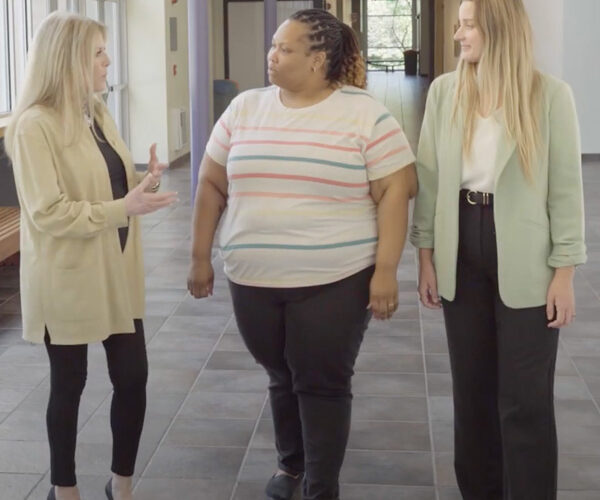Significant Proposals of House Ways
& Means Committee Reconciliation Package and Build Back Better Act
On September 13, the House Ways & Means Committee introduced a set of tax proposals as part of the House Democrats’ “budget reconciliation” package containing significant federal tax changes designed to raise revenue. On October 28, a revised “Build Back Better Act” bill was introduced in the House of Representatives. That legislation, the byproduct of weeks of intense negotiation among Congressional Democrats and members of the Biden administration, significantly modified many of the tax-related provisions that were included in the original bill.
With negotiations over the budget package taking place, predictions over what tax changes will become law have proven to be quite difficult. However, it is fair to say that with Democratic majorities in the House and Senate, coupled with the commitment of the Biden Administration and the Democratic leadership in both the House and Senate to the major federal programs set out in the revised bill and the tax changes designed to fund them, many provisions of the bill could pass.
The following outlines the most significant legislative proposals affecting individuals. Unless otherwise noted, the proposed tax changes would be effective no earlier than the 2022 tax year.
Legislative Proposals
A. Proposals in the Revised Build Back Better Act
- Removal of the increase to the top ordinary income rate; 5% surtax for those with a modified AGI of $10M. In the original bill, the top ordinary income tax rate was set to increase to 39.6% (from 37%); the top capital gains tax rate, to 25% (from 20%); and the top corporate income tax rate, to 26.5% (from 21%). The revised bill drops these proposed tax rate increases. However, the revised bill would impose a 5% surtax on the amount an individual taxpayer’s “modified” adjusted gross income (AGI) is in excess of $10 million. Also proposed: An additional 3% surtax on the amount an individual taxpayer’s modified AGI is in excess of $25 million.
- Removal of the reduction in the unified estate and gift tax exemption. In the revised bill, no reference is made to any reduction in the exemption from gift, estate and generation-skipping transfer taxes. Therefore, those exemption amounts will be increased to $12.06 million on January 1, 2022. Removed from the original bill was a proposal to cut those exemption amounts in half.
B. Additional Legislative Proposals
- Expansion of the universal charitable deduction for non-itemizers. Proposed legislation seeks to expand the current universal charitable deduction to allow a charitable deduction up to one-third of the standard deduction available to non-itemizers (about $4,000 for individual filers and $8,000 for married joint filers).
- Expansion of the IRA Charitable Rollover. Proposed legislation would expand the annual limit on IRA charitable rollovers to $130,000 (from its current level of $100,000) for direct transfers to charity, and permit transfers to charitable remainder trusts and gift annuities of up to $400,000. A House proposal (H.R. 2954) would index the rollover amount to inflation and permit one-time transfers to charitable remainder trusts and gift annuities at a $50,000 level.
C. Other Upcoming Tax Changes
- Expanded charitable deduction for itemizers. The COVID relief legislation passed in 2020 provided that charitable contributions made in cash to most charities (but not DAFs) were generally deductible to up to 100% of a taxpayer’s gross income, rather than the usual 60% (with a carryover subject to certain limitations) is set to expire at the end of 2021 with no proposal yet to extend it.
- Required minimum distributions (RMDs) are back. For 2020, the CARES Act suspended the requirement that those who are 70½ or older take an RMD from certain retirement savings accounts (including IRAs, 401(k)s, and Roth 401(k)s). This requirement is back for 2021 (though it applies beginning at age 72), and the Biden Administration has not proposed to suspend it again. RMDs from IRAs and 401(k)s are taxable income.
The following are key consideration for year-end tax planning given the uncertainty of the passage of the tax legislative proposals:
- Determine if (and how much) the 5% surtax will affect your clients. With the elimination of the increase to the ordinary income tax rates, you must now only consider if your client has significant income in excess of the $10 million threshold, since the revised bill proposes a 5% surtax on the amount an individual taxpayer’s “modified” adjusted gross income (AGI) is in excess of $10 million. The surtax means it may be beneficial to defer deductions (including charitable deductions) to 2022 and beyond. However, with the elimination of the increases to the ordinary income tax rates, the standard “tried and true” year-end tax planning mantra of deferring income and accelerating deductions to reduce the current year’s bill can have significant time-value-of-money benefits.
- Use appreciated assets to make a charitable gift in 2021. As in previous years, gifting appreciated assets (stock) remains a best practice. With the continued bull market and potential for the proposed retroactive increase in the capital gains tax rates, charitable donations of appreciated property are more valuable than ever, providing not only a charitable deduction but also the potential to avoid the higher capital gains tax.
- Consider donating to a Donor Advised Fund (DAF) this year for maximum flexibility. If your clients are considering making a significant donation to charity over time but want a deduction today, this may be the last year to utilize the current flexibility provided by a DAF. It can be especially beneficial to donate appreciated property, because by doing so your client avoids capital gains taxation forever. Consider recommending your client add to an existing DAF, or CLICK HERE to learn about opening a DAF at The Associated.
- Charitable donations of cash may be useful if offsetting a large portion of taxable income. 2021 likely will be the last year you can use a charitable donation of cash to offset more than 60% of your adjusted gross income. For those in a position to make a significant charitable gift of cash, this may provide an opportunity. Note that contributions in excess of 60% of AGI cannot be made to a DAF.
- Look into an IRA charitable rollover. The IRA charitable rollover is an attractive option because it can satisfy the RMD requirement without incurring income tax, even if you don’t itemize your deductions. Depending on whether proposed legislation expanding the rollover amount and allowing rollovers to charitable remainder trusts and gift annuities is enacted, this option could become even more attractive in future years.
As with any significant tax and charitable planning, it is always advisable to carefully consider potential changes in the context of your complete financial profile. We also recommend that you monitor the above legislative proposals as they will be considered by Congress later this year. Should any significant legislation be approved, we will communicate those changes to you and provide suggestions for your charitable giving.

The Associated’s professionals are ready to work with you and your advisors on ways to help maximize the financial and charitable benefits of any charitable planning strategies available to you.
For more information, contact Jackie Yahr at 410-369-9248 or jyahr@associated.org.
This is for informational purposes only and should not be construed as legal, tax or financial advice. When considering gift planning strategies, you should always consult with your own legal and tax advisors.
Subscribe to our newsletter
The Associated is a home for everyone in the Baltimore Jewish community. We offer several email lists to help people find a community, engage with their peers and support Jewish journeys around the world.
Join Our Mailing ListAdd Impact to Your Inbox
Sign up for our newsletter
Subscribe to our newsletter
The Associated is a home for everyone in the Baltimore Jewish community. We offer several email lists to help people find a community, engage with their peers and support Jewish journeys around the world.
Join Our Mailing List









 Please Wait while we loading your video.
Please Wait while we loading your video.